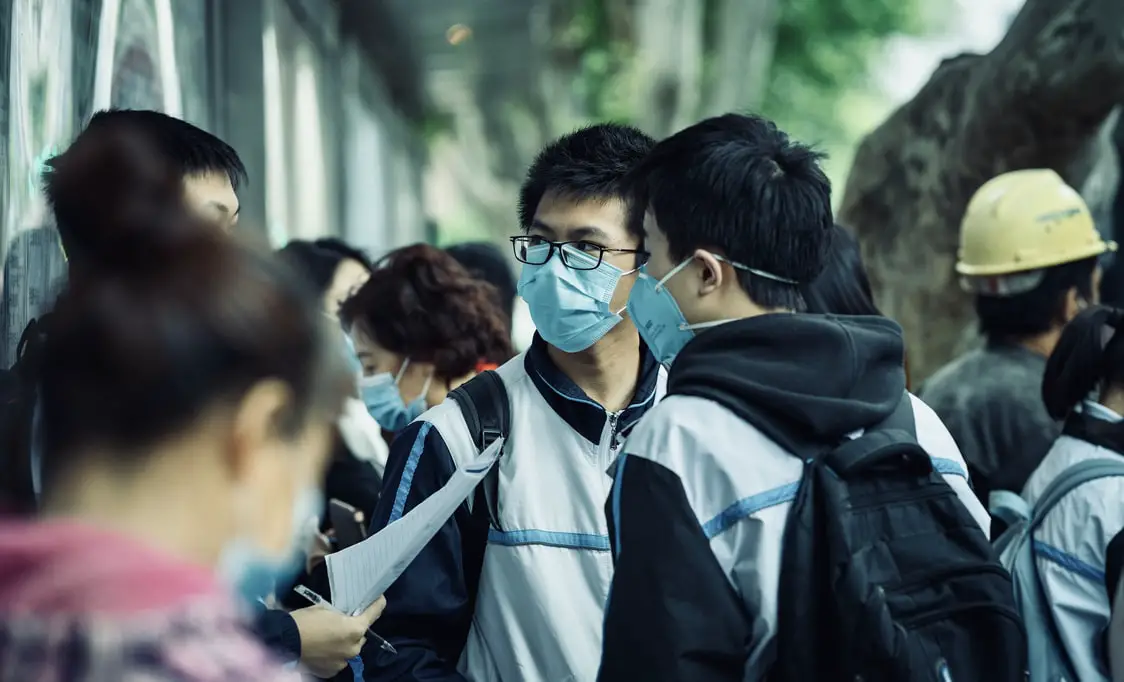What happened when Singapore’s top universities combined technology, tough penalties, and disciplined students? The answer is zero coronavirus cases.
The success stories of Singaporean universities are in marked contrast to several US universities, many of which saw an explosion in cases when students returned to campus last fall.
Following the government’s lead, prestigious universities such as the National University of Singapore (NUS), Nanyang Technological University (NTU), and Singapore Management University (SMU) adopted a top-down approach to containing virus transmission, mandating social distancing, and tracing contacts on campus.
Medical students at @NUSMedicine can now learn about patient safety and operating theatre procedures despite clinical restrictions during #COVID19, thanks to a new VR gaming system called PASS-IT. #NUSImpact https://t.co/e3Rr8T2CRQ
— NUS (@NUSingapore) August 13, 2020
The goal is to “make sure there are no infections” on campus, NUS President Tan Eng Chye stated to The New York Times.
Aggressive Testing to Save the Day
Testing for the coronavirus is critical for tracking its spread and determining when isolation and containment measures should be put into place.
However, it hasn’t been easy for students and faculty to get tested on certain US university campuses. For example, saliva-testing at the University of South Carolina is entirely voluntary and had to be stopped entirely in September after a staff member who administered the tests became ill. The university had already reported over 1,000 cases by then.
In comparison to such lackadaisical measures in the US, universities in Singapore adopted aggressive testing measures to nip the virus in the bud. NUS, which had resorted to online lectures for a brief period, was quick to resume campus operations. By fall, the university was implementing strong social distancing measures by assigning students to different zones on campus while imposing tough penalties for flouting rules.
The university also ensured students who returned to campus had “their temperatures checked and their locations tracked on an app via a national digital check-in system.” according to the university’s emergency information website.
No Fraternities, Sororities, or Parties
Unlike at American colleges, most students in Singapore do not live on campus. Those who do, comply with more restrictions, including limits on the number of visitors to their dorms.
Singapore also does not have fraternities and sororities, which have been cited for many COVID rule violations across the US. Off-campus parties and mass gatherings continued despite the pandemic, causing a spike in on-campus cases.
Alabama Crimson Tide fans flood the streets of Tuscaloosa after the team secured its 18th national title. pic.twitter.com/k9UCH8BC4m
— James Benedetto (@james_benedetto) January 12, 2021
Several universities were quick to roll out disciplinary measures. Some, like the University of Kentucky and Indiana University, were quick to crack down on students flouting social distancing violations. However, despite tough measures, some campuses such as California State University continue to see many students breaking the rules, reporting over 1,000 cases in a week last month, the university’s website reported.
Compared to the US, a cooperative student population in Singapore was a big help in slowing down the spread. In fact, baffled by reports of parties at US schools amidst the pandemic, Olivia Lim, a senior at NTU, said, “Why would they risk themselves to do such a thing?”
Technology to the Rescue
To control campus crowds, Singapore’s universities have relied heavily on technology. Last spring, the Singapore Spacer project, a tool that uses Wi-Fi signal strength to identify places with a high concentration of human traffic, was launched.
Developed by two professors, the project went live in April. “What we are trying to do is help our universities who are facing the same problem, which is ‘How will we provide safe environments for our students?’” explained Professor Rajesh Balan, one of the heads of the project.
Balan’s colleague, Professor Chee, agrees, adding that what is more important than technology is the attitude among students that collective welfare matters the most.



